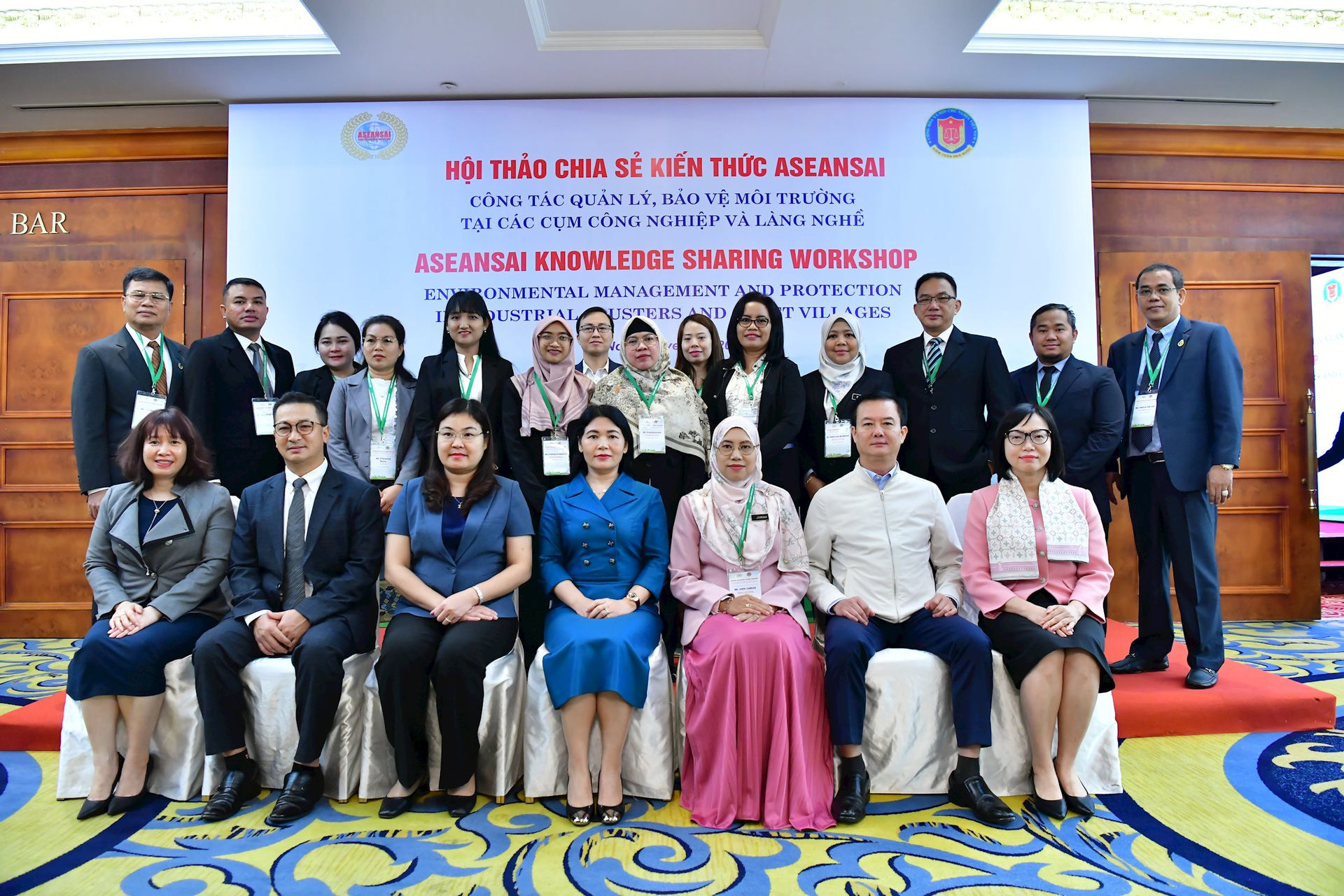(sav.gov.vn) - According to the ASEAN Supreme Audit Institutions (ASEANSAI), all member Supreme Audit Institutions (SAIs) are intensifying environmental auditing efforts to protect the environment for the Sustainable Development Goals (SDGs), and promoting transparency and accountability in public governance.

Environmental protection as an imperative
Ms. Ha Thi My Dzung, Deputy Auditor General of Viet Nam, emphasized that Southeast Asian countries are witnessing rapid industrialization and modernization which serve for economic growth, job creation, and export boosting. However, this progress has led to significant environmental challenges, affecting public health and quality of life if not effectively managed. In the context of globalization, the demand for environmental protection to meet SDGs is growing. Thus, countries not only focus on economic development but must also address environmental protection and social responsibilities. Being well aware of this, the State Audit Office of Viet Nam (SAV) has conducted environmental audits at local levels, recording notable results and making important evaluations and recommendations.
Mr. Tran Bau Ha, Vice Chairman of Ha Tinh Provincial People's Committee, shared that after an audit of environmental management in industrial clusters (ICs) and traditional villages in Ha Tinh Province for the 2020-2022 period, SAV revealed that several ICs and villages are lacking proper environmental protection infrastructure, which hindered investment attraction. Many businesses and production facilities have not prioritized investing in environmental protection or were running inefficient systems. Most traditional villages are located near residential areas, with wastewater and air emission infrastructure failing to meet environmental protection standards, posing a risk of environmental pollution. Following SAV's conclusions and recommendations, Ha Tinh Province directed various departments and localities to address and improve environmental management in ICs and traditional villages.
“The ASEANSAI Knowledge Sharing Committee encourages SAIs to promote open dialogues and knowledge exchange. Through collaborative efforts, we look forward to empowering each member country, being equipped with the necessary tools and information to contribute meaningfully to achieving SDGs.” - Datuk Wan Suraya Wan Mohd Radzi, Auditor General of Malaysia
In Nam Dinh Province, after the SAV’s audit on environmental management in ICs and traditional villages for the 2020-2022 period conducted in 2023, the Provincial People's Committee reviewed and issued decisions on recognizing traditional businesses and villages as per regulations; directed the communes with traddional villages to make environmental protection plan; held awareness – raising activities, and provided legal training about environmental protection in these villages. Ms. Ha Lan Anh, Vice Chairwoman of the Nam Dinh Provincial People's Committee, highlighted that environmental protection in ICs and traditional villages is crucial and must be comprehensively implemented at all levels of the Province.
Ms. Nguyen Thi Kieu Thu, SAV auditor, shared that audits help identify legal gaps and offer actionable recommendations for revising regulations to strengthen environmental management. Drawing from practical experience, she emphasized the need to expand audit scope, integrate modern technology, and enhance auditor capabilities through specialized training, exchanging experience with and learning from domestic and international experts. Stronger cooperation with regional and international audit organizations, on the other hand, is essential for sharing knowledge, experience, and new technologies in environmental auditing.
"ASEANSAI continues to serve as a bridge connecting regional SAIs with international organizations, providing access to resources, international standards, and professional collaboration opportunities, while enhancing the capacity of member SAIs. Through training and knowledge sharing, ASEANSAI aims to elevate the professionalism and effectiveness of environmental audits in public governance." - Deputy Auditor General Ha Thi My Dzung.
Knowledge Sharing on Environmental Challenges
Ms. Datuk Wan Suraya Wan Mohd Radzi, Chairman of the ASEANSAI Knowledge Sharing Committee, expressed that the collaborative efforts of SAIs in international and regional forums have generated successful cooperative audits which contributed to addressing the urgent environmental issues. The Knowledge Sharing Committee has established necessary frameworks and guidelines for environmental audits, but their application varies by country, requiring specialized knowledge about local environmental issues.
Datuk Wan Suraya Wan Mohd Radzi highlighted that member SAIs have diverse approaches which are tailored to their respective environmental audit context. The knowledge sharing therefore not only enriches the insight for SAIs but also opens new precious opportunities for them to learn the experience from one another to effectively conduct environmental audits for SDGs.
SAI Myanmar underlined the necessity to examine the compliance with terms of oil and gas drilling and exploitation licenses to generate the recommendations. Through audits, it identified the lack of proper management and supervision according to the licenses’ terms, which posed a significant environmental risk. Inadequate monitoring undermined efforts to mitigate environmental, social, and economic impacts on local communities from drilling and extraction activities.
SAI Indonesia, after environmental audit of and assessment of environmental impacts in tourism villages in Toba District, issued important recommendations which required permits when using conservation areas for personal purposes, comprehensive environmental planning to maintain ecosystem sustainability, waste management systems, and human resource development in tourism.
SAI Malaysia shared its experience in auditing national water resource management, identifying four major challenges: limited data on water resources, lack of expertise in the water industry, auditing risks, and insufficient enforcement authority. Despite these challenges, SAI Malaysia successfully completed the audit and recommended increased monitoring of water projects, improved control of pollutants, and more effective management to meet human needs while conserving the environment's sustainability.
SAI Brunei suggested that for significant environmental issues, independent agencies should be hired for monitoring. When violations are detected, cases should be referred to higher authorities for appropriate action.